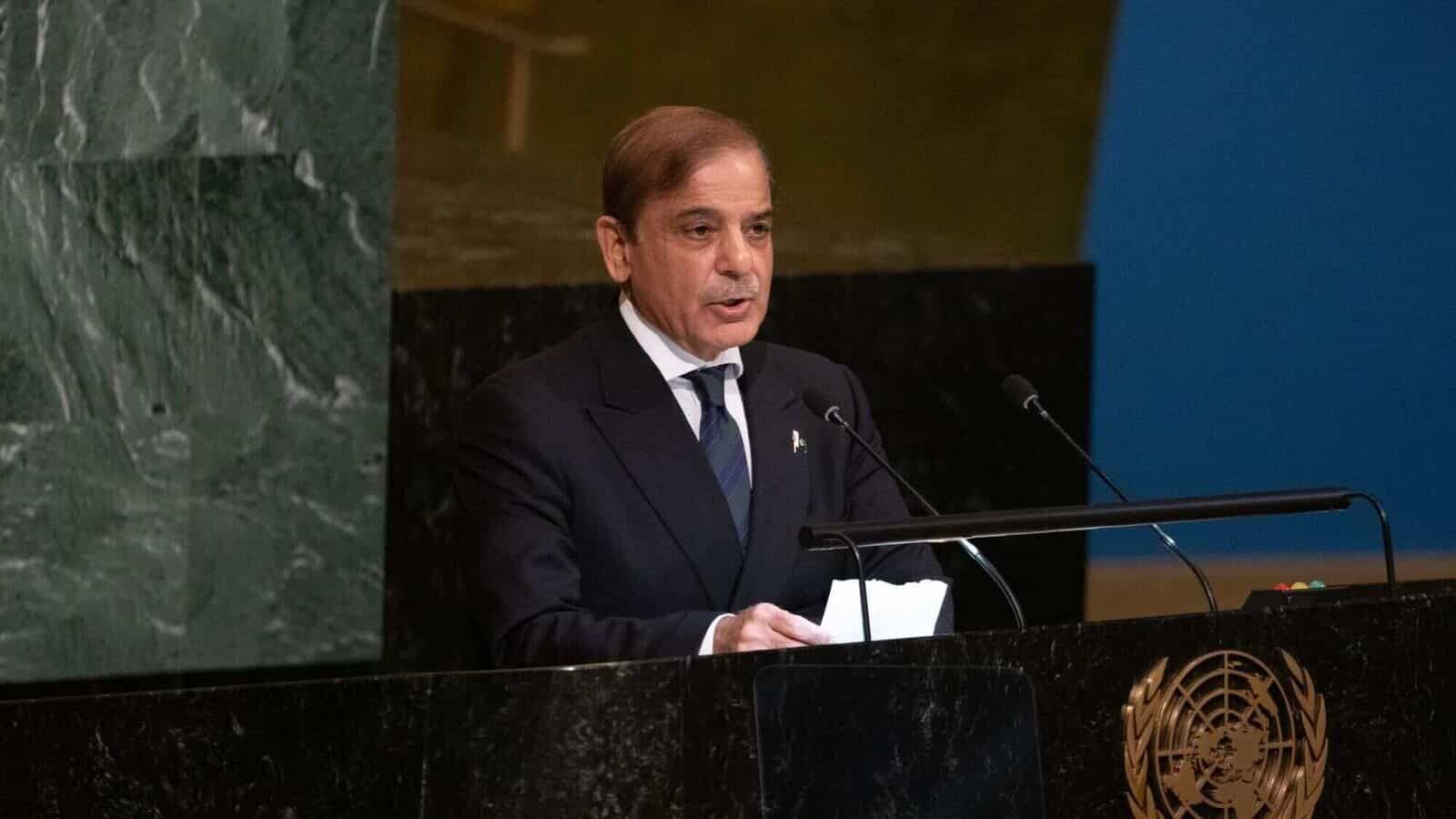Lacklustre address!
Shehbaz Sharif’s maiden UNGA speech attracted rebuttal from the Afghan government, and his rant on the Kashmir issue failed to convince the audience

Prime Minister Shehbaz Sharif's maiden speech (September 23) at the United Nations General Assembly (UNGA) session led to a renewed diplomatic irritant between Pakistan and the Afghan interim government. Immediate reason for the annoyance was that Afghanistan got provoked when the Pak Prime Minister, on one hand, urged the international community to remain engaged with the Afghan Taliban but on the other, shared global concerns over the presence of terrorist groups on the Afghan soil. The mere mention of terrorist groups' presence on the Afghanistan soil was vehemently denied by the Taliban dispensation. Shehbaz particularly mentioned the threats posed by the major terrorist groups operating from Afghanistan, especially ISIL-K, TTP, Al-Qaeda, etc. He said all need to be dealt with comprehensively, with the support and cooperation of the interim Afghan authorities. Immediately, a formal reaction issued by the Afghan foreign ministry stated that some countries, including the United States and Pakistan, expressed concerns at the 77th session of the UNGA that the threat of terrorism still existed in Afghanistan. However, these concerns were based on incorrect information and are being brought up as the relevant parties are yet to hand over the seat of Afghanistan at the United Nations to its rightful legal and political owners i.e. the Afghan government. The spokesperson further said that the Islamic Emirate once again rejected such assertions and reiterated its stated position. He assured that the territory of Afghanistan would not be used against any other country nor does any armed group currently have any presence in Afghanistan.
It is pertinent to mention that since the Taliban takeover, Pakistan has been pleading with the de-facto rulers of Afghanistan at various world forums and consistently urging the international community, particularly the western world, not to abandon the war-torn country. But despite Pakistan's push for international engagement, it is not happy with the Afghan Taliban government in dealing with the threats posed by terrorist groups, particularly the banned TTP. Although the Afghan Taliban brokered a ceasefire deal between Pakistan and the TTP, terrorist attacks from across the border continue to take place and there is an eerie unease.
Recently, Pakistan wrote a letter to the Afghan government about the presence of banned Jaish-e-Mohammad (JeM) chief Maulana Masood Azhar in Afghanistan. Islamabad asked Kabul to arrest the most wanted man and asked them to hand him over to Pakistan. The interim Afghan government, however, rejected those allegations and insisted that Azhar was not present on Afghan soil. It is worth repeating that Masood Azhar is a dreaded terrorist and was directly involved in the terror assaults in India at the behest of Pakistani establishment. It is more likely that Azhar is hiding in Pakistan.
Unlike in the past, this time Pakistan is moving with caution in recognising the Taliban government. Pakistan has decided to go along with the regional and international countries on the issue of recognition. Under these circumstances, Pak-Afghan relations, in the wake of Shehbaz Sharif's vitriolic statement in the UN targeting Kabul, can be considered to be strained and not showing any signs of amelioration
Furthermore, Prime Minister Shehbaz Sharif, in his maiden address to the United Nations General Assembly (UNGA), highlighted Pakistan's plight due to the massive flooding caused by global climate change, and urged global leaders to come together and "act now" before it was too late. Dwelling upon the regional situation, PM Shehbaz said that Pakistan was seeking peace with all its neighbours, including India. Harping the same old tune, he called upon for a just and lasting solution of the Jammu and Kashmir "dispute". He alleged India's illegal and unilateral actions of August 5, 2019, to change the internationally recognised "disputed" status of J&K which had led to a tumult. He further alleged that New Delhi had ramped up its military deployments in J&K making it the "most militarised zone" in the world.
Such acerbic anti-India statements notwithstanding, they did not augur well with the audience as the allegations were far from convincing and were bereft of any cogent logic. It appears that Shehbaz's speech, which was faint in its tenor and syntax, was not at all acceptable by the world at large. The call to the global community for adopting concrete measures against `Islamophobia' also seemed very amateurish. In sum, targeting India on Kashmir and on the false allegations of Hindu majoritarian regime, could not be easily sold to the world audience. On the whole, Pakistan PM Shehbaz Sharif's speech was not impressive which remained lacklustre and was devoid of any grace, niceties and diplomatic elegance.
The writer is a retired IPS officer, a security analyst and a former National Security Advisor to the PM of Mauritius. Views expressed are personal



